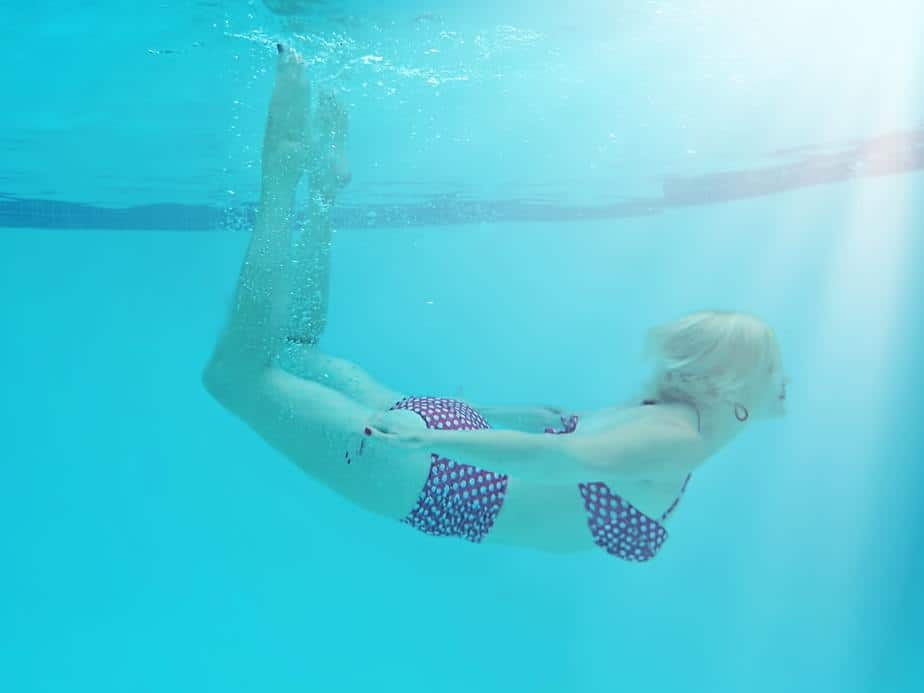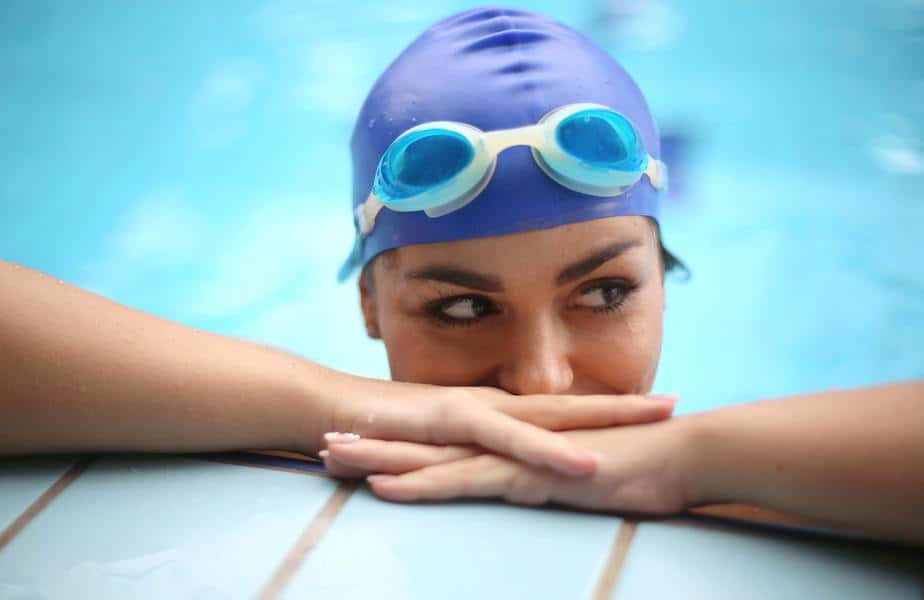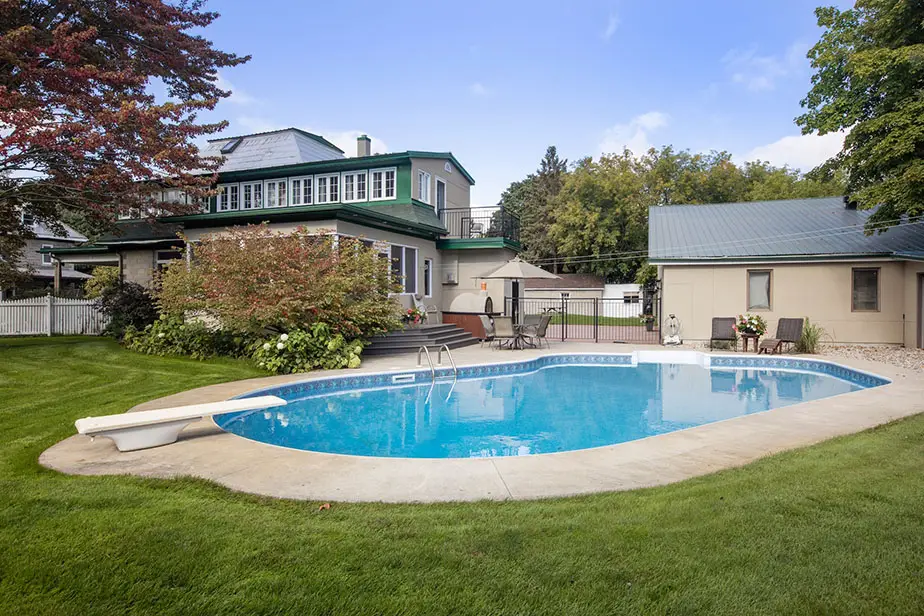You’ve heard it over and over again: you shouldn’t swim alone in general, and the pool is no exception. While I can understand the arguments made about swimming outdoors in the open water, I feel like the argument doesn’t really hold up when applied to swimming in a pool.
A swimming pool is arguably the safest, most controlled swimming environment that you can swim in. You do not have to worry about the weather, currents, water visibility, temperature, and a whole host of other factors that people swimming outdoors have to contend with.
Swimming alone in the pool is a safe activity and it should not be as stigmatized as it is. There are precautions you can take to ensure you are safe even if you’re swimming in the pool alone, such as knowing your limits, not diving into the pool, and not doing anything risky such as breath-holding or consuming alcohol before swimming. It is unreasonable to demand another person watch over you at all times when swimming unless you are a parent watching over a child.
Keep reading on to learn about the various precautions you can take and warnings to heed so that you can safely swim alone in the pool.
Defying conventional wisdom

Ask any swimming instructor, and they’ll probably tell you that you should not swim alone. They’ll say that in an emergency situation, someone swimming alone is almost certainly going to drown.
But that’s kind of like asking a police officer if it’s okay to speed or jaywalk. Technically it’s not okay but everyone does it and occasionally there might be an accident. For this reason, no authority is going to condone these actions because it’d be like they approve of the risk, but people are going to do their own thing anyway.
I understand wanting people to stay safe, but I think overdoing it leads to fear mongering. What’s next, are experts going to tell people not even to leave their house alone because someone somewhere in the country got mugged while out for a walk?
There is a risk to anything in life, however we cannot live our lives in fear. Some activities are worth doing in spite of the risk. Plus, precautions can be taken to lower any risks or to avoid them altogether.
With the exception of young children, I’d say that any able-bodied teenager or adult should be able to go swimming alone in a pool. Unless you have a physical disability or a medical condition that might flare up, I think it’s perfectly reasonable to swim alone especially if you follow the precautions described below.
Precautions to stay safe swimming alone in the pool
Take formal swimming lessons
This is definitely a “no duh” moment, but it bears repeating. If you’ve never formally been taught how to swim, I highly suggest taking at least a few lessons. And if it’s been a long time since you were formally taught, look up a YouTube video for a refresher.
Swimming pools offer adult swimming lessons where you can schedule the frequency and time of the lessons so that it fits your schedule. You will be with other adults and under the supervision of a swim instructor that can help adults overcome their fear of swimming.
The reason I bring up swimming lessons is because one of the basic things they teach you is how to conserve energy by floating on your back. If you have a sudden issue such as a leg cramp, you must instinctively turn on your back so that you can stay afloat with minimal effort.
You may even be able to skillfully maneuver yourself to the edge of the pool using only your arms if your legs are taken out of action or vice versa. Having a strong grasp of the fundamentals will allow you to save your own life.
Keep flotation devices nearby
I don’t recommend swimming with a flotation device on such as a life jacket, as that would just get in the way of a good swim. However, it’s not a bad idea to leave a lifesaver ring, float board, or some kind of flotation device nearby in case you need help staying afloat.
This provides extra insurance in case you have trouble swimming to the wall during an emergency, then perhaps a flotation device close by will be more practical to reach. With the assistance of this flotation device, then perhaps you can reach the steps/ladder and climb out.
Don’t drink alcohol

There’s a good reason why you shouldn’t drink alcohol so early in the day. Alcohol can impair balance, judgment, coordination, and lower your body temperature. These all result in poor swimming performance and an increased risk of drowning.
The CDC lists alcohol consumption as one of the leading causes of adult drownings. It is not just the physical impairment that is deadly, but the mental impairment that leads to poor judgment.
This is mostly an issue for outdoor swimming where swimmers can swim into dangerous areas or swim out too far. However, even at a home swimming pool, I’m sure people will find creative ways to endanger themselves so let’s not let alcohol add fuel to that fire.
See a doctor
If you are on certain drugs or prescription medications, you should see a doctor about potential side effects and how it might affect your swimming ability.
Certain medications can cause side effects that are similar to the effects of alcohol, i.e. impaired judgment and coordination.
If you are on medications to treat anxiety, depression, or other such conditions, please consult a doctor and see if there are any workarounds you can do.
If your doctor says swimming is too big of a risk, or that you should always have someone watching over you, then listen to the doctor’s orders.
Don’t do any tricks
There’s just something so irresistibly alluring about the water that makes people want to dive headfirst into it. It’s even worse if there is a diving board or a nearby roof that someone can dive off of.
Unfortunately, like a siren’s song, this has led to disastrous consequences over the years when people botched their landing or hit their head on the bottom of the pool, sometimes with fatal outcomes.
So what are you to do? If you’re older or risk-averse, then this is less of an issue. Recognize how dangerous that action is and just don’t do it. It is teenagers, young adults, or people who have consumed alcohol and have impaired judgment that go through with these dangerous acts.
Since you’re alone, then at least peer pressure is not an issue. That said, for some people this means it is time for them to practice their back flip or front twist or any other kind of crazy tricks where a botched attempt could be fatal.
If you’re alone, just don’t do it. If you’re with others, it’s still a bad idea but at least the people beside you can rescue you if something goes awry.
Wear a swimming cap

Afraid that your hair will get caught on something, such as a pool vent? If you have long hair, wear a swimming cap while swimming. It will prevent your hair from getting caught on anything, as well as limit the amount of chlorine and sunlight your hair is exposed to, plus it keeps hair strands from clogging up the filter, improves your hydrodynamics, and many other benefits.
Avoid muscle cramps
Swimming after eating food should not be the cause of muscle cramps, but it would probably be very uncomfortable trying to swim on a full stomach.
That said, you should absolutely stay hydrated at all times. I know some people try not to drink too much water prior to swimming because they don’t want to get the urge to pee. Conversely, some people don’t care about that and freely pee into their pool, which is safe to do but not exactly recommended.
Another cause of muscle cramps is due to being low on electrolytes. Essentially, that means your body needs calcium, sodium, potassium, magnesium, and chloride.
A simple way to get these much needed electrolytes is to buy or make your own energy drink. You can also naturally get them from eating food such as bananas, yogurt, milk, spinach, kale, table salt, soups, and so on.
Lastly, fatigue or muscle overuse can also lead to cramping. This can occur from swimming too long, or the fatigue can be accumulated from other sports that ultimately leads to a cramp while swimming. In other words, pushing yourself too hard can come around and bite you in the behind if you’re not careful. This segues nicely into my final point, which is to know your limits.
Know your limits
If you are using the pool for intense training rather than relaxation, then it is imperative that you are aware of your physical limits.
I follow a rule that I adopted from my time as a weightlifter. If I am not 100% certain that I can do a repetition, then I err on the side of caution and end my set. I would only push myself to my limits and beyond if I had a training partner spotting me. I often trained alone, and this rule has undoubtedly saved me from being crushed multiple times over the years.
You can apply the same logic to swimming. If you are near your limits and are starting to doubt if you can do another lap, just stop, especially if you’re alone or you risk drowning. Pushing your body to its limits also increases the chances of getting a cramp, as discussed above, and your only reward for taking this risk is just an ego-boost. Not worth it.
Parting words
Friends, please do not take my recommendations as blanket permission to go swimming alone under any and all circumstances, not that I have any control over what you do in the first place.
I believe that there are legitimate risks involved, which is why the majority of this article was spent talking about the precautions you should take. If this sounds like too much work, you are exactly the kind of person who should not be swimming alone.
While swimming alone is mostly safe, do not throw caution into the wind and do not feel a false sense of security just because you took some precautions. You never know when you might suddenly find yourself in an emergency situation.
By preparing beforehand, you minimize the risk of it even happening in the first place. Plus you have some extra insurance in case you, God forbid, find yourself in a life-threatening situation.
Parents of young children, please understand that the advice dispensed in this article is geared towards adults, not young children. Never allow your child to swim alone, unsupervised. Make sure to enroll your children into formal swimming lessons as early as possible so that they can learn basic water safety skills and protect themselves if they ever fall into the pool.


